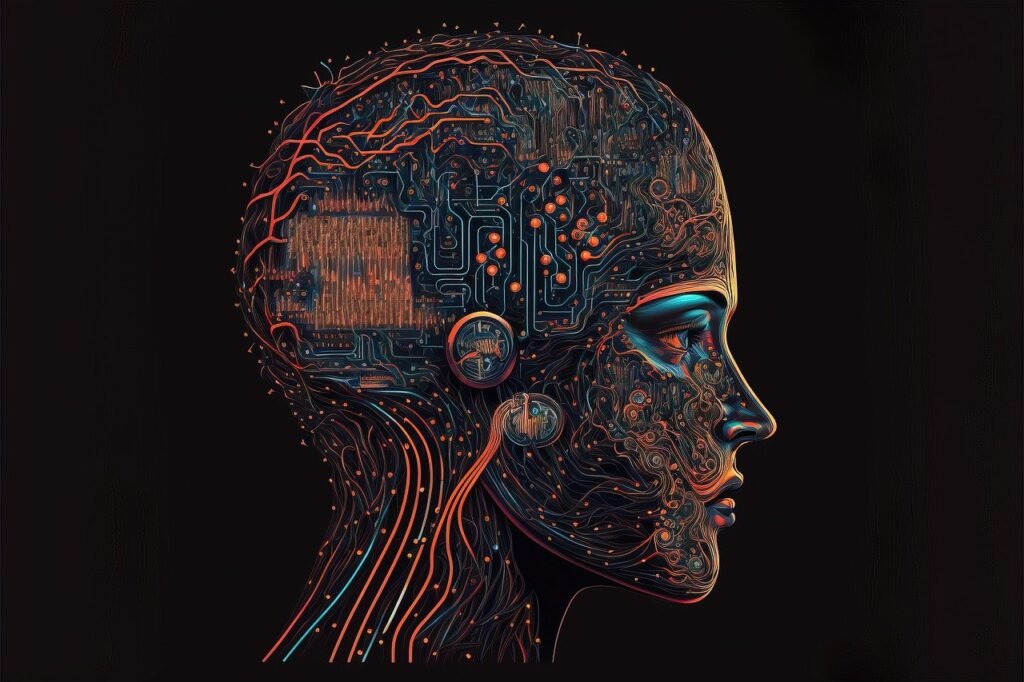What Level of Education is Required for Artificial Intelligence?

Artificial Intelligence (AI) industries across the globe integrate AI into their operations, and the demand for professionals skilled in AI continues to grow. However, one common question arises: What level of education is required for artificial intelligence? In this comprehensive article, we will explore the educational paths, degrees, and skills necessary for a successful career in Artificial Intelligence.
Understanding the Basics of Artificial Intelligence
Before delving into the educational requirements, it is essential to understand what artificial intelligence entails. It encompasses a variety of subfields, including machine learning, natural language processing, computer vision, and robotics.
High School Education: Building the Foundation
The journey towards a career in artificial intelligence often starts in high school. Key subjects include:
Mathematics
- Algebra: Understanding variables, equations, and functions.
- Calculus: Grasping concepts like derivatives and integrals.
- Statistics: Learning about probability, data analysis, and interpretation.

Science
- Physics: Building analytical and problem-solving skills.
- Computer Science: Learning the basics of programming, algorithms, and data structures.
Extracurricular Activities
Participation in activities like coding clubs, math competitions, and science fairs can further enhance one’s knowledge and interest in AI.
Bachelor’s Degree: The Starting Point
A bachelor’s degree is typically the minimum requirement for most entry-level positions in the field of artificial intelligence. Pursuing a relevant undergraduate program provides the essential knowledge and skills needed to embark on a career in Artificial Intelligence. Key areas of study include:
Computer Science
Key courses often include:
- Data Structures and Algorithms: Fundamental for efficient problem-solving and software development.
- Software Engineering: Principles of designing, developing, and maintaining software systems.
Mathematics
A strong grasp of mathematics is crucial for Artificial Intelligence. Degrees in mathematics or applied mathematics cover essential topics such as:
- Linear Algebra: Understanding matrices and vector spaces, critical for machine learning.
- Probability and Statistics: Key for data analysis and developing AI models.
- Calculus: Necessary for understanding changes and optimizations in Artificial Intelligence algorithms.
Engineering
Degrees in electrical engineering or computer engineering provide a blend of hardware and software knowledge, which is valuable for developing AI systems. Core subjects include:
- Digital Logic Design: Basics of designing digital circuits, essential for hardware integration.
- Microprocessors: Understanding the functioning and programming of microprocessors used in Artificial Intelligence applications.
- Control Systems: Studying feedback systems, is important for robotics and automation.
Interdisciplinary Programs
Some universities offer interdisciplinary programs that combine computer science, mathematics, and engineering, tailored specifically for AI. These programs provide a well-rounded education, preparing students for various AI roles.
Practical Experience
Gaining practical experience through internships, research projects, and hands-on lab work is vital. Working on real-world Artificial Intelligence projects, participating in hackathons, and contributing to open-source projects help students apply theoretical knowledge and develop problem-solving skills.
A bachelor’s degree not only provides the foundational knowledge required for Artificial Intelligence but also opens up opportunities for further specialization through advanced degrees or certifications.
Master’s Degree: Advancing Your Knowledge
While a bachelor’s degree can open doors to entry-level positions in artificial intelligence, a master’s degree is often preferred for more specialized roles. Pursuing a master’s degree allows for deeper knowledge, advanced research opportunities, and greater career prospects. Common master’s programs for AI include:
Master’s in Artificial Intelligence
A specialized degree focused exclusively on AI, covering both theoretical and practical aspects. Key areas of study include:
- Deep Learning: Study of deep neural networks, convolutional neural networks (CNNs), and recurrent neural networks (RNNs).
- AI Ethics: Exploration of ethical considerations, bias in AI, and responsible AI development.
Master’s in Data Science
A degree emphasizing data analysis, statistical methods, and machine learning, which are integral to AI. Core subjects include:
- Big Data Analytics: Techniques for handling and analyzing large datasets.
- Statistical Modeling: Application of statistical methods to interpret and predict data patterns.
- Data Mining: Extracting useful information from vast amounts of data.
Master’s in Computer Science
A broader degree allowing for specialization in AI-related topics. Important courses may include:
- Natural Language Processing (NLP): Techniques for enabling machines to understand and process human language.
- Computer Vision: Methods for interpreting and understanding visual information from the world.
Interdisciplinary Master’s Programs
Some institutions offer interdisciplinary master’s programs combining AI with fields like business, healthcare, or engineering. These programs prepare graduates to apply AI in specific industries, enhancing their versatility and employability.
Research Opportunities
A master’s degree often involves a significant research component, allowing students to work on cutting-edge AI projects. This research experience is invaluable for those seeking roles in AI development, innovation, and academia.
Networking and Professional Growth
Pursuing a master’s degree allows you to network with AI experts, lecturers, and classmates. Networking can result in partnerships, work experience, and career prospects. Attending conferences, seminars, and workshops further enriches the learning experience.
Enhanced Career Prospects

Holding a master’s degree in AI or a related field significantly enhances career prospects.
- AI Research Scientist: Conducting advanced research and developing new AI algorithms and technologies.
- Machine Learning Engineer: Designing and implementing machine learning models for various applications.
- Data Scientist: Analyzing and interpreting complex data to aid decision-making and strategic planning.
- AI Consultant: Advising organizations on AI integration and optimizing AI solutions for business processes.
A master’s degree not only deepens one’s knowledge of artificial intelligence but also provides a competitive edge in the job market, enabling professionals to advance their careers and contribute to the rapidly evolving field of AI.
Doctoral Degree: For Research and Academic Roles
A doctoral degree (Ph.D.) is often essential for those aiming to pursue research or academic careers in artificial intelligence. A Ph.D. Here’s what you need to know about pursuing a doctoral degree in AI:
Specialization and Research Focus
Ph.D. candidates typically specialize in a specific area of AI. Some common specializations include:
- Reinforcement Learning: Focused on algorithms where agents learn to make decisions by receiving rewards or penalties.
- Natural Language Processing (NLP): Study of algorithms that enable computers to understand, interpret, and respond to human language.
- Computer Vision: Techniques for enabling machines to interpret and process visual data from the real world.
Coursework and Research
While a significant portion of a Ph.D. program is dedicated to research, students also take advanced coursework to build a deeper understanding of AI concepts. Key components include:
- Advanced Machine Learning: In-depth study of complex algorithms and their applications.
- Theoretical AI: Exploration of the mathematical foundations and theories underpinning AI.
- Ethics and Policy: Examination of the ethical implications and policy considerations in AI development and deployment.
Dissertation and Defense
A critical component of a Ph.D. program is the dissertation, a substantial piece of original research that contributes new insights to the field of AI. The process involves:
- Proposal: Presenting a research proposal outlining the intended study and methodology.
- Research: Conducting rigorous, in-depth research, often spanning several years.
- Writing: Documenting the research findings in a comprehensive dissertation.
- Defense: Presenting and defending the dissertation before a panel of experts.
Teaching and Mentorship
Many Ph.D. programs involve teaching assistantships, where candidates teach undergraduate courses or assist professors. This experience is valuable for those aiming for academic careers, providing skills in teaching and mentorship.
Career Opportunities
A Ph.D. in AI opens doors to various high-level positions, including:
- AI Research Scientist: Leading innovative research projects in academia or industry, developing new AI technologies and methodologies.
- University Professor: Teaching AI courses, mentoring students, and conducting research at academic institutions.
- Principal Investigator: Leading research teams and projects, often in collaboration with universities, research institutions, or tech companies.
- Senior Data Scientist: Applying advanced AI techniques to solve complex problems and drive strategic decision-making in various industries.
Contribution to the Field
Ph.D. graduates contribute significantly to the advancement of AI by publishing research papers, presenting at conferences, and collaborating with other researchers.
Networking and Professional Growth

Engaging with the academic and research community through conferences, workshops, and seminars is crucial. Networking with peers, professors, and industry professionals can lead to collaborations, funding opportunities, and recognition in the field.
Specialized Courses and Certifications
In addition to formal degrees, specialized courses and certifications can significantly enhance one’s knowledge and skills in artificial intelligence. These programs offer targeted learning opportunities and are often more flexible and accessible than traditional degree programs.
Online Learning Platforms
Several online platforms offer comprehensive AI courses and certifications, allowing individuals to learn at their own pace. Some notable platforms include:
Coursera
Key offerings include:
- Machine Learning by Stanford University: Taught by Andrew Ng, this course covers the basics of machine learning, including supervised and unsupervised learning, best practices, and practical applications.
edX
edX offers courses from renowned institutions, such as:
- Artificial Intelligence by Columbia University: This course covers the fundamentals of AI, including search algorithms, knowledge representation, and robotics.
- MicroMasters in Artificial Intelligence by Columbia University: A more advanced program consisting of multiple courses, leading to a MicroMasters credential.
Udacity
Udacity provides Nanodegree programs that are highly regarded in the tech industry. Relevant programs include:
- Artificial Intelligence Nanodegree: Focuses on foundational AI concepts, including search, optimization, and game-playing.
- Machine Learning Engineer Nanodegree: Emphasizes building and deploying machine learning models, using tools like TensorFlow and PyTorch.
Professional Certifications
Obtaining certifications from reputable organizations can validate your AI skills and knowledge. Some key certifications include:
IBM AI Engineering Professional Certificate
Offered through Coursera, this certification covers machine learning, deep learning, and AI engineering. It includes hands-on projects and practical applications.
Microsoft Certified: Azure AI Engineer Associate
This certification focuses on designing and implementing AI solutions on Microsoft Azure. It covers AI workloads, natural language processing, computer vision, and conversational AI.
Google Professional Machine Learning Engineer
A certification designed for individuals proficient in designing, building, and deploying machine learning models on Google Cloud Platform (GCP). It covers ML models, pipelines, and metrics.
Specialized AI Courses
In addition to comprehensive programs, specialized courses are focusing on specific AI areas:
Natural Language Processing (NLP)
- NLP Specialization by Coursera: Covers the fundamentals of NLP, including text classification, sentiment analysis, and machine translation.
Computer Vision
- Computer Vision on Coursera: The University of Buffalo offers this course, which includes processing images, extraction of features, and identification of objects.
Reinforcement Learning
- Reinforcement Learning Specialization by Coursera: Covers the principles and algorithms of reinforcement learning, including value-based methods, policy gradient methods, and deep reinforcement learning.
Ethics in AI
- AI For Everyone by Coursera: Taught by Andrew Ng, this course provides an overview of AI, including its applications, impact, and ethical considerations.
Gaining Practical Experience
Many of these courses and certifications include practical projects and assignments, allowing learners to apply their knowledge to real-world problems. Additionally, participating in online competitions, such as those hosted by Kaggle, can further enhance practical skills and provide exposure to diverse AI challenges.
Essential Skills for AI Professionals
To excel in the field of artificial intelligence, professionals need a diverse set of skills that span technical, analytical, and problem-solving domains. Here are the essential skills required for a successful career in AI:
Programming Languages
Proficiency in programming languages is crucial for developing and implementing AI algorithms. Key languages include:
- Python: Widely used in AI for its simplicity and extensive libraries like TensorFlow, Keras, and PyTorch.
- Java: Commonly used in large-scale AI systems and enterprise applications.
- C++: Valuable for performance-critical applications and high-efficiency AI implementations.
Mathematical and Statistical Knowledge
A solid understanding of mathematics and statistics underpins many AI techniques. Important areas include:
- Linear Algebra: Essential for understanding neural networks and machine learning algorithms. Concepts like matrices and vectors are fundamental.
- Calculus: Key for optimization techniques in machine learning, such as gradient descent used in training models.
- Probability and Statistics: Crucial for data analysis, modeling, and algorithm development.
Machine Learning Algorithms

Deep knowledge of machine learning algorithms is necessary for designing effective AI models. Key algorithms and techniques include:
- Supervised Learning: Algorithms such as linear regression, support vector machines (SVM), and decision trees for tasks like classification and regression.
- Unsupervised Learning: Techniques like clustering (e.g., K-means) and dimensionality reduction (e.g., PCA) for discovering patterns in unlabeled data.
- Deep Learning: Understanding neural networks, convolutional neural networks (CNNs), and recurrent neural networks (RNNs) for complex tasks like image and speech recognition.
Data Analysis and Visualization
Key competencies include:
- Data Cleaning: Techniques for handling missing values, outliers, and inconsistencies in data.
- Exploratory Data Analysis (EDA): Methods for summarizing and visualizing data to uncover insights and patterns.
- Visualization Tools: Proficiency in tools like Matplotlib, Seaborn, and Tableau for creating informative and actionable visualizations.
Understanding AI Frameworks and Libraries
Familiarity with AI frameworks and libraries enhances productivity and efficiency. Important tools include:
- PyTorch: A popular framework for dynamic neural networks and deep learning research, developed by Facebook.
- Scikit-Learn: A library for machine learning in Python, providing simple and efficient tools for data mining and data analysis.
Problem-solving and Critical Thinking
Strong problem-solving and critical thinking skills are essential for tackling complex AI challenges. Key aspects include:
- Algorithmic Thinking: Ability to break down problems into smaller, manageable components and devise effective algorithms to solve them.
- Innovation: Developing new approaches or improving existing methods to address unique or complex problems in AI.
Communication and Collaboration
Effective communication and collaboration skills are vital for working within teams and conveying complex ideas. Important skills include:
- Technical Communication: Ability to explain complex AI concepts and results to non-technical stakeholders.
- Team Collaboration: Working effectively with cross-functional teams, including data scientists, engineers, and business analysts.
Ethics and Responsible AI
Understanding the ethical implications of AI and ensuring responsible use of technology is increasingly important. Key considerations include:
- Privacy: Ensuring data privacy and security, especially when handling sensitive or personal information.
- Transparency: Striving for transparency in AI systems to foster trust and accountability.
Continuous Learning
Given the rapid advancements in AI, a commitment to continuous learning is essential. Staying updated with the latest research, trends, and technologies helps maintain relevance in the field.
Gaining Practical Experience
Gaining practical experience is crucial for developing and honing skills in artificial intelligence (AI). This hands-on experience not only reinforces theoretical knowledge but also prepares professionals for real-world challenges.
Internships
Internships provide invaluable exposure to real-world applications of AI. Key benefits include:
- Industry Exposure: Working in a professional environment helps understand how AI is applied in different sectors such as tech, healthcare, finance, and more.
- Networking Opportunities: Internships offer a chance to connect with industry professionals and mentors who can provide guidance and potentially offer future job opportunities.
- Hands-On Projects: Interns often work on meaningful projects that contribute to the company’s goals, allowing for practical application of AI techniques and tools.
Research Projects
Participating in research projects, either through academic institutions or independently, allows for deep exploration of specific AI topics. Important aspects include:
- Collaborative Research: Working with academic or industry researchers can provide exposure to cutting-edge techniques and methodologies.
- Publishing Papers: Contributing to research publications and presenting at conferences enhances credibility and showcases expertise in the field.
- Experimental Learning: Research projects often involve experimenting with novel ideas, offering a deeper understanding of AI concepts and their practical implications.
Hackathons and Competitions
Hackathons and competitions are excellent opportunities to apply AI skills in a competitive and time-constrained environment. Key benefits include:
- Team Collaboration: Working with diverse teams fosters collaboration and communication skills.
- Recognition and Awards: Excelling in competitions can lead to recognition, awards, and potential job offers from companies seeking talented individuals.

Open Source Contributions
Contributing to open-source AI projects allows for practical experience and community engagement. Benefits include:
- Exposure to Real Projects: Working on open-source projects provides experience with actual codebases and development practices.
- Skill Development: Contributing to projects helps improve coding skills, problem-solving abilities, and understanding of collaborative development workflows.
- Community Involvement: Engaging with the open-source community provides networking opportunities and insights into current trends and best practices.
Freelancing and Contract Work
Freelancing and contract work offer opportunities to work on diverse AI projects. Key aspects include:
- Variety of Projects: Freelancing provides exposure to different types of AI applications, from machine learning models to data analysis and visualization.
- Client Interaction: Working directly with clients helps develop communication and project management skills.
- Portfolio Building: Completing freelance projects allows for the creation of a portfolio showcasing skills and accomplishments.
Online Courses and Practical Labs
Many online courses offer practical labs and projects that simulate real-world scenarios. Key benefits include:
- Hands-On Experience: Practical labs allow learners to apply concepts in a controlled environment, reinforcing theoretical knowledge.
- Project-Based Learning: Many courses include capstone projects or assignments that involve building and deploying AI models.
Networking and Professional Development
Engaging with the AI community through networking events, conferences, and seminars provides additional opportunities for practical learning. Key benefits include:
- Learning from Experts: Attending talks and workshops by industry experts offers insights into current trends and practices.
- Building Connections: Networking with professionals can lead to collaborative opportunities, mentorship, and career advancements.
Personal Projects
Working on personal AI projects allows for creative experimentation and skill development. Important aspects include:
Portfolio Development: Personal projects can be showcased in portfolios or resumes, demonstrating initiative and practical skills to potential employers.
Exploration of Interests: Personal projects provide the freedom to explore specific interests and areas of AI that may not be covered in formal education.
Conclusion

In conclusion, the level of education required for a career in artificial intelligence varies depending on the role and specialization. While a bachelor’s degree can provide a solid foundation, advanced roles often require a master’s or doctoral degree. Continuous learning through specialized courses, certifications, and practical experience is also crucial. By combining formal education with essential skills and hands-on experience, aspiring AI professionals can position themselves for success in this dynamic and rapidly evolving field.
What are the most groundbreaking inventions in technology in 2024?
Top 10 Best Gaming Laptops of 2024: High Performance & Portability





One thought on “What Level of Education is Required for Artificial Intelligence?”